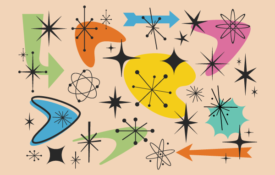-
Talking About Racial Bias With the Author of ‘Biased’
Few can speak more authoritatively to the subject of racial bias than Stanford psychologist Jennifer Eberhardt. In her 2019 book Biased, the MacArthur genius unpacked decades of research, some performed by herself and her colleagues, that helps explain how bias operates powerfully, but sometimes subconsciously, in the brain. GEN caught up with Eberhardt to talk about how the subject of her book is playing out in the summer of George Floyd’s killing, how her work with police departments has helped decrease bias in arbitrary stops, and how we should talk about race with children. GEN: Your book Biased explores the science of how bias works, often on an unconscious level.
-
What Does Boredom Do to Us—and for Us?
Quick inventory: Among the many things you might be feeling more of these days, is boredom one of them? It might seem like something to disavow, automatically, when the country is roiling. The American plot thickens by the hour. We need to be paying attention. But boredom, like many an inconvenient human sensation, can steal over a person at unseemly moments. And, in some ways, the psychic limbo of the pandemic has been a breeding ground for it—or at least for a restless, buzzing frustration that can feel a lot like it.
-

Days of Future Past: Concerns for the Group’s Future Prompt Longing for Its Past (and Ways to Reclaim It)
APS interviews Michael Wohl on how collective angst can influence collective nostalgia.
-

New Content From Perspectives on Psychological Science
A sample of articles on emotion regulation, violent media, parent’s role in addressing children’s racial bias, memory repression, bittersweetness, the measurement of implicit bias, and a solution for barriers to compassion.
-
Repeating Misinformation Doesn’t Make It True, But Does Make It More Likely To Be Believed
One of the most frustrating aspects of the coronavirus pandemic is seeing all of the false information circulating around social media. I was inspired to write this article after reading unfortunate (and inaccurate) comments on a local Georgia school district’s Facebook page after they announced that three of its high schools were transitioning back to digital learning. It was breathtaking to see so many inaccurate claims about efficacy of face masks, fatality rates, or comparisons to the flu. My Forbes contributions are typically about weather and climate, but I am often inspired to make connections with other aspects of science too.
-

New Research in Psychological Science
A sample of research on confidence and task prioritization, language patterns, eyeblinks and perception, dishonesty, negotiation, sound symbolism.

